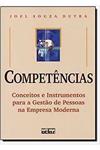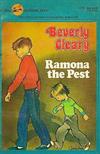
No Full Stops in India
4 journalers for this copy...
Mark Tully, a former BBC India correspondent looks at India to explore its politics, society and culture in this book. Written in his usual no nonsense approach this book is a collection of essays focusing..
Journal Entry 2 by  Deepswamp
Deepswamp at A fellow BookCrosser, A RABCK -- Controlled Releases on Monday, June 8, 2009
at A fellow BookCrosser, A RABCK -- Controlled Releases on Monday, June 8, 2009
 Deepswamp
Deepswamp at A fellow BookCrosser, A RABCK -- Controlled Releases on Monday, June 8, 2009
at A fellow BookCrosser, A RABCK -- Controlled Releases on Monday, June 8, 2009
Released 14 yrs ago (6/8/2009 UTC) at A fellow BookCrosser, A RABCK -- Controlled Releases
CONTROLLED RELEASE NOTES:
CONTROLLED RELEASE NOTES:
On your wishlist
The Ultimate Challenge 2009
RABCK challenge 2009
On your wishlist
The Ultimate Challenge 2009
RABCK challenge 2009
It's here! Thank you so much, Deepswamp, for sending me this book, it looks really good! It will have to go to Mt TBR for now, but I hope I will be able to read it soon!
This was an interesting read. I'm going to India myself at the end of this year, so I've been reading a lot about the country and this book was an interesting look at it. I liked how he wrote about so many different topics in separate essays, though some topics were more interesting than others. What I liked the most was how he explained everything in detail, not just stating India is "exotic", but really going into the history and talking to the people to find out reasons. So it goes much further than your usual travel story.
Reserved for Bookguide.
Reserved for Bookguide.
This arrived unexpectedly in my letterbox this morning! Thank you, Rapturina, for sending it to me, although I couldn't for the life of me work out if I signed up for it some time, as it doesn't appear to be a ring or ray... Half a day later, I've twigged! It's from the Two Worlds Virtual Book Box! I shall add it to Mount TBR;-)
If you are interested in the culture of India in the sense of religion, temples, music and dance, this is not the book for you, although there is an interesting chapter on the religious festival the Kumbh Mela, which reminded me of the descriptions of the Egyptian Moulid in Tanta described in Abdel-Hakim Kassen's book The Seven Days of Man. I also enjoyed the chapter about the filming of the Indian soap series which is based on the Hindu Ramayan stories.
Each of the ten chapters in Mark Tully's book gives an insightful view into a particular time, place or trend in the India of the 1980s and 1990s including the background and history. Mark Tully was born in Calcutta, brought up in a post-colonial India, educated in Britain, but returned as a journalist who lived there, loved the country, and yet was aware of the fact that he remained an outsider. The essays are journalistic in style, and many of them deal with the politics of the region, but brought down to a human level. In his long career in India, Tully travelled extensively and made many personal contacts and friends whom he was able to interview to gain insight into the way the country ticks. He was often aware that the way India is portrayed in the Western press concentrates on the sensational, and that Western organisations often try to apply Western solutions to India's problems, without being sensitive to a culture which, though it might appear chaotic and inefficient to the sanitised West, has operated more or less successfully for thousands of years, and has never been static but has evolved. In recent years the problems of "cultural imperialism" and lack of sensitivity to other cultures have become more widely recognised, with charities concentrating more on small-scale self-sufficiency and local loans, but these essays were written at the time of top-down, Western-run initiatives such as "Feed the World" money-raising extravaganzas. So Mark Tully's visits to villages were refreshing, as he wrote about the benefits of traditional life, where families and castes looked after each other, and initiatives such as SEWA were helping women set up cooperatives. This sort of grass-roots local charity was not well-known in the West in those days.
As he visited various politicians, a "tribal" artist whose work had become popular and other men of standing all over the country, a picture emerged of how successful people financially helped the people surrounding them so that their relative wealth benefitted many others, either by giving money to individuals or building schools, etc. In traditional areas, people still lived in their extended families, and widows were taken in by their husband's extended families, although by Western standards women were not free and widows could not remarry. In the epilogue, written just after the assassination of Rajiv Ghandi, Tully concludes that it was Indira Ghandi's son's lack of understanding of his own country, his Westernised attitudes, even his lack of fluency in Hindi, which were his downfall. By trying to apply a foreign style of democracy instead of working within the age-old Indian methods of subtle diplomacy, backhanders, corrupt officials and personal favours, he was doomed to failure. This seemingly chaotic style and widespread poverty seem from the outside to be problems to be solved, but the real threats are consumerism, the greed of the middle classes which throw the poverty of the masses into stark relief and the demand for Western-style organisation and efficiency which will cause loss of work for the unskilled; the uneducated poor will be even more disadvantaged and less able to achieve their ambitions, however meagre they may seem. Traditional Indian society can be seen as communist with a small c in the way in which it has a place and an occupation for everyone, and it is questionable if a move to Western-style efficiency will solve anything. Can the West claim to know the answers when it is currently plagued by problems of unemployment, poverty and the debate about how far the social security network should go to support people? Perhaps traditional societies have much to teach us.
"The strength of India lies in the resilience of the poor. That night I, like so many outsiders, had forgotten that the pavement-dwellers of Patna do manage to make lives for themselves, they have families and friends, they have their hopes and their fears. They are to be admired, not pitied. The poor may be fatalists, but this does not mean they have despaired."
Each of the ten chapters in Mark Tully's book gives an insightful view into a particular time, place or trend in the India of the 1980s and 1990s including the background and history. Mark Tully was born in Calcutta, brought up in a post-colonial India, educated in Britain, but returned as a journalist who lived there, loved the country, and yet was aware of the fact that he remained an outsider. The essays are journalistic in style, and many of them deal with the politics of the region, but brought down to a human level. In his long career in India, Tully travelled extensively and made many personal contacts and friends whom he was able to interview to gain insight into the way the country ticks. He was often aware that the way India is portrayed in the Western press concentrates on the sensational, and that Western organisations often try to apply Western solutions to India's problems, without being sensitive to a culture which, though it might appear chaotic and inefficient to the sanitised West, has operated more or less successfully for thousands of years, and has never been static but has evolved. In recent years the problems of "cultural imperialism" and lack of sensitivity to other cultures have become more widely recognised, with charities concentrating more on small-scale self-sufficiency and local loans, but these essays were written at the time of top-down, Western-run initiatives such as "Feed the World" money-raising extravaganzas. So Mark Tully's visits to villages were refreshing, as he wrote about the benefits of traditional life, where families and castes looked after each other, and initiatives such as SEWA were helping women set up cooperatives. This sort of grass-roots local charity was not well-known in the West in those days.
As he visited various politicians, a "tribal" artist whose work had become popular and other men of standing all over the country, a picture emerged of how successful people financially helped the people surrounding them so that their relative wealth benefitted many others, either by giving money to individuals or building schools, etc. In traditional areas, people still lived in their extended families, and widows were taken in by their husband's extended families, although by Western standards women were not free and widows could not remarry. In the epilogue, written just after the assassination of Rajiv Ghandi, Tully concludes that it was Indira Ghandi's son's lack of understanding of his own country, his Westernised attitudes, even his lack of fluency in Hindi, which were his downfall. By trying to apply a foreign style of democracy instead of working within the age-old Indian methods of subtle diplomacy, backhanders, corrupt officials and personal favours, he was doomed to failure. This seemingly chaotic style and widespread poverty seem from the outside to be problems to be solved, but the real threats are consumerism, the greed of the middle classes which throw the poverty of the masses into stark relief and the demand for Western-style organisation and efficiency which will cause loss of work for the unskilled; the uneducated poor will be even more disadvantaged and less able to achieve their ambitions, however meagre they may seem. Traditional Indian society can be seen as communist with a small c in the way in which it has a place and an occupation for everyone, and it is questionable if a move to Western-style efficiency will solve anything. Can the West claim to know the answers when it is currently plagued by problems of unemployment, poverty and the debate about how far the social security network should go to support people? Perhaps traditional societies have much to teach us.
"The strength of India lies in the resilience of the poor. That night I, like so many outsiders, had forgotten that the pavement-dwellers of Patna do manage to make lives for themselves, they have families and friends, they have their hopes and their fears. They are to be admired, not pitied. The poor may be fatalists, but this does not mean they have despaired."
Journal Entry 7 by bookguide at OBCZ De Waard in Helmond, Noord-Brabant Netherlands on Sunday, March 24, 2013
Released 11 yrs ago (3/24/2013 UTC) at OBCZ De Waard in Helmond, Noord-Brabant Netherlands
WILD RELEASE NOTES:
Bookweek meeting OBCZ De Waard, Helmond.
This book has been released as part of the following BookCrossing challenges:
- The Ultimate Challenge - read and release books, with extra points for a monthly theme
- Reduce Mount TBR (To Be Read) - read and release books on the TBR list since before the end of 2012. My reading goal is 65 books.
- Pages Read Challenge - read a self-set target number of pages in 2013. My goal is 26,000.
- 666 country challenge.
This book has been released as part of the following BookCrossing challenges:
- The Ultimate Challenge - read and release books, with extra points for a monthly theme
- Reduce Mount TBR (To Be Read) - read and release books on the TBR list since before the end of 2012. My reading goal is 65 books.
- Pages Read Challenge - read a self-set target number of pages in 2013. My goal is 26,000.
- 666 country challenge.
This book looks quite interesting.
So I needed to take it home.
Thanks Deepswamp for registering and bookguide for bringing this beauty!
So I needed to take it home.
Thanks Deepswamp for registering and bookguide for bringing this beauty!












